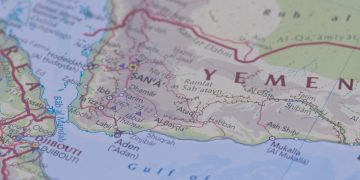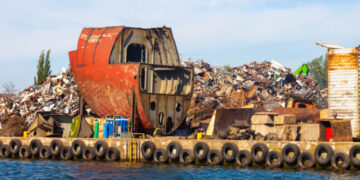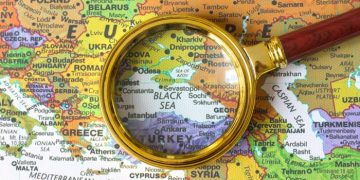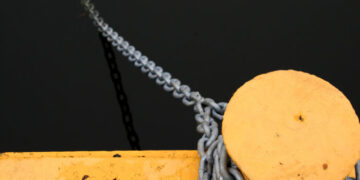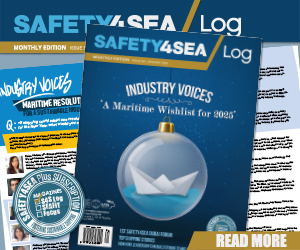In an exclusive interview to SAFETY4SEA, Robert Ashdown, Secretary General of the International Association of Classification Societies (IACS), notes that the accelerated pace of decarbonization and digitalization brings the need for a strategic approach to ensure safety and the impact on the associated human element factors. As he explains, IACS is in the process of developing classification requirements for those solutions and is supporting IMO on statutory regulations.
To attract the younger generation, however, the industry must emphasize the realities of modern shipping. This generation must understand that shipping is a dynamic and unique global sector that offers chances that are unmatched by any other, Robert Ashdown concludes.
SAFETY4SEA: What are the top priorities in your agenda for the next 5 years?
Robert Ashdown: IACS priorities are as follows:
- Decarbonisation: To deal with the technical regulatory items related to the development, safe application and safe use of alternative energy sources and new technologies on board ships.
- Digitalisation: To enable the safe and secure adoption of digital technologies and to oversee its transition as an important tool for the enhanced efficiency of the industry and as a key enabler of concurrent decarbonisation efforts.
- Human Element: To recognise the role of the human element in operating increasingly complex ships (in both their normal and reasonably foreseeable abnormal operating conditions) and to consider how human intervention can pose a threat to the system and how the system can pose a threat to the human.
- MASS: To actively contribute to Maritime Autonomous Surface Ships (MASS) through its involvement in various fora, reinforced by its maritime technical expertise, and as a trusted partner to regulators and industry The advancement of MASS has reinforced future trends of autonomy and the need for enhanced technical requirements in shipping.
S4S: What are currently the key challenges for shipping from your perspective? What are your suggestions to move forward?
R.A.: Societal expectations are placing intense pressure on maritime regulators to adopt increasingly ambitious measures to reduce CO2 emissions from the shipping industry. The accelerated pace and depth of decarbonisation targets means it is crucial to understand the safety risks involved in reducing carbon emissions at speed; the multiple pathways in terms of alternative fuels and new technologies means there is a need for a strategic approach to ensure that the safety of each decarbonisation solution is properly assessed. Additionally, it is crucial to consider the associated human element factors, as the alternative fuels and the deployment of new technologies will have their own impacts on the crew both in terms of onboard management as well as at the ship-shore interface. IACS is in the process of developing classification requirements for those solutions and is supporting IMO on statutory regulations. A proposal for a structured approach to the development of a regulatory safety framework was very recently agreed by MSC 107.
S4S: From your perspective, what are the key barriers that the maritime industry is currently facing with regards to decarbonisation? What are your suggestions to turn these into opportunities?
R.A.: A key barrier to the maritime industry’s decarbonisation is the absence of regulatory certainty for many of the alternative fuels and new technologies that will result in reduced or zero carbon emissions. These uncertainties make long-term investments and decisions challenging for investors and stakeholders; companies may delay or hesitate to invest in new technologies and infrastructure without a clear understanding of the regulatory framework. This is where the need for collaboration between industry stakeholders and policymakers becomes apparent given the fragmented nature of the industry. Further, there is a risk that in the absence of internationally agreed regulations, port State control could start detaining ships using alternative fuels and new technologies.
S4S: How can industry stakeholders best collaborate in support of sustainable development?
R.A.: Identifying shared objectives and establishing common goals to meet international environmental targets can only happen if Industry stakeholders work together and share their expertise and resources, including data sharing, so that joint investments in conducting research and development can be considered with a view to finding optimal routes to successful delivery. Recognising that work on decarbonisation needs to start from a position of knowledge, IACS is working with its industry partners to provide a comparative analysis of different energy sources looking at aspects such as storage requirements and engine configuration requirements. Involving other interested parties such as fuel manufacturers is especially important if a truly holistic overview is to be achieved. IACS has in place a structured programme of industry and regulator engagement by which it seeks to facilitate, and contribute to, pan-industry collaboration.
S4S: What are some of the key actions you are taking to lead the green transition of the shipping industry?
R.A.: IACS general support of the industry’s green transition lies in providing expert, apolitical and non-commercial technical leadership to the maritime industry and its regulators. More specifically, a recent key commitment has been the establishment of a Safe Decarbonisation Panel (SDP) by IACS to ensure that the goals for reducing carbon emissions are attained safely and with the necessary technical details. Four project teams are already working on ammonia, hydrogen, carbon capture and storage and batteries to help deliver the common technical requirements at speed. This commitment to ensuring that standards are harmonised and that technologies can be tested against these requirements will play an important role in encouraging the industry to invest in these alternative fuels and new technologies.
IACS is also working with its industry partners to develop a consolidated matrix of possible alternative fuels and new technologies in order to guide the activities of a new IACS-led, Joint Industry Working Group on Technology Readiness Levels (JIWG/TRL) of alternative fuels and new technologies. Through ongoing dialogues with our industry partners and effective collaboration with our members, IACS continues to deliver on its unwavering commitment to safer, cleaner shipping.
S4S: In your view, what needs to change to raise industry’s profile and attract the future talents?
R.A.: Ships are becoming ever more technically advanced and digitized and are producing massively increased volumes of data that can be analysed ashore to improve the efficiency of operations. The shipping industry needs to highlight the realities of modern shipping if it is to attract the data scientists and analysts that it will need in the future and then link the interest of the specific roles to the excitement of an industry that is truly global, 24/7, dynamic and unique in the scope and opportunities it affords.
S4S: If you could change one thing in the shipping industry from your perspective, what would it be and why?
R.A.: Although not a realistic possibility, it would be nice if we could reach a stage where each new ship was not, in effect, a prototype. This would allow for incremental improvements in ships’ efficiencies which will become increasingly important as the low-hanging fruit of decarbonisation technologies are consumed and where very small percentage gains become increasingly important.
S4S: What is your message to industry stakeholders with regards to a more sustainable future for shipping?
R.A.: The message must be positive. A sustainable future is an almost universal societal expectation and shipping can and should play its full role in this respect. Fortunately, it is widely acknowledged that this is something the industry must do, we have the skills, experience, technologies and engineers to make it something we can do, and we know that we must work to an accelerated timetable to drive the change that needs to happen now if the industry is to remain relevant in the regulatory debate. So, my message is comprised of three words: must, can and now.
The views presented hereabove are only those of the author and do not necessarily reflect those of SAFETY4SEA and are for information sharing and discussion purposes only.





